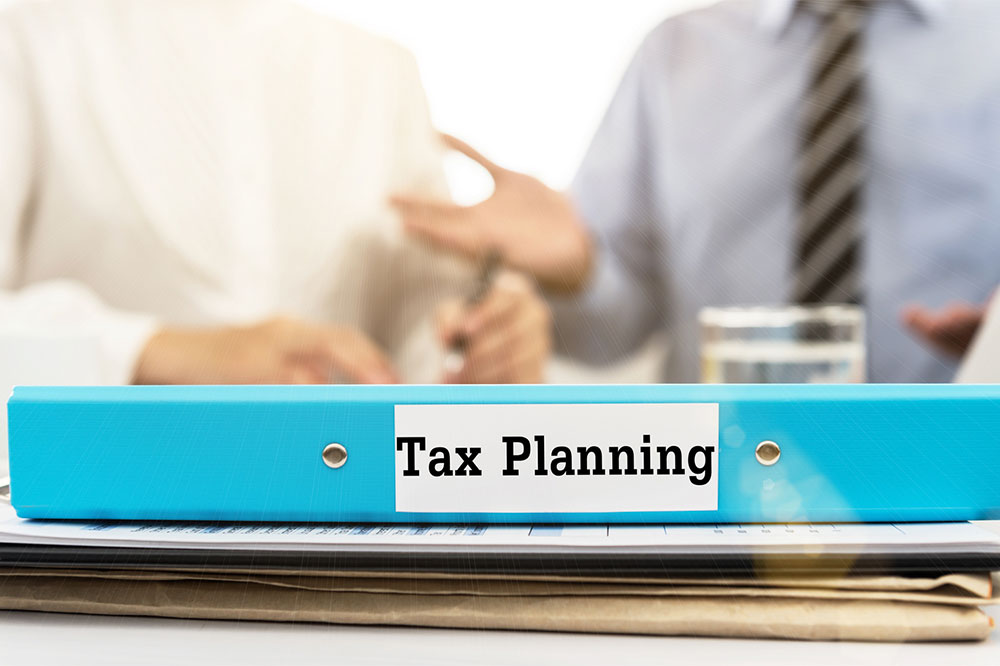Understanding tax preparation and planning
In compliance with the tax codes and process laid by the government, it is mandatory for every citizen of the country to file their tax returns in the first quarter or by April 15th every year. In this context, taxpayers should typically be aware of two elements – tax preparation & planning. Both are equally important. One addresses your tax liabilities for the previous year, and the other takes care of the future.
Tax preparation is primarily concerned with computing and accounting for the previous year’s taxes. It calculates the amount you owe to the IRS (Internal Revenue Service) as per the tax code.

What is tax planning?
This entails making plans to minimize your tax liabilities in the coming year. You can arrange your personal finances so that you can reduce the liabilities to the minimum. Consider tax planning to be a long-term process. With the right mindset and a seasoned planner, you can set your goals and make strategies to gain maximum benefits in the future.
Differences between tax preparation & planning
Objective
The main objective of tax preparation is to fill in and complete the required tax forms and file them in accordance with the federal and state tax laws correctly and within the stipulated time period. On the other hand, the primary goal of tax planning is to work on minimizing tax liabilities and maximizing tax savings for the future. The other goal is to ensure that as an individual or a business entity, you are operating within the given federal and state tax laws with minimal or negligible tax penalties.
Frequency
Tax preparation typically needs to be done once every year. This happens between January and April, just after the closing of the financial year. Sometimes, the tax season can get an extension. In such cases, the activity happens between September and October.
Tax planning is not a one-time affair; it is a continuous year-round process. Your tax planner will consider several aspects of your finances to advocate the right plan. These aspects include:
- Current financial conditions
- Current tax regulations
- Past tax filing records
- Financial goals of the individual and the business entity
Communication
Tax preparation requires one or two rounds of communication between you and your tax preparer. In general, this will cover about two months and not more. In the case of tax planning, there must be a continuous flow of communication between you and your tax planner to analyze, plan, and strategize for the upcoming year. In the case of businesses, the communication may need to be ongoing as most marketplaces and financial situations keep evolving.
Strategizing for tax preparation & planning
Tax preparation strategies
Tax preparation, thankfully, does not require long-drawn strategizing. One of the key decisions in this context is to hire an expert tax preparer well in advance and provide them with all the required information on time.
Tax planning strategies
When it comes to tax planning, you need to strategize because this is a complex gamut. You need to understand your deductions, tax credits, and the federal tax bracket. It would help if you also have clarity about financial solutions that will help you save and pay fewer taxes.
Tax planning can help both individuals and businesses. For individuals, tax planning helps make a failsafe plan for expenditures, savings, and retirement savings. Some of the tax planning strategies that can help you as an individual save taxes include:
- Open a 401(K) savings account and channel up to $20,500 into this account every year
- Benefit from tax advantage of a traditional or a Roth IRA (Individual Retirement Account)
- Fund up to $2,850 into your FSA (Flexible Spending Account) and use the amount to pay for dental and healthcare expenses during the year
- You can contribute more to the HSA (Health Savings Account) as these are tax-exempt accounts
Tax planning for businesses also comes with multiple benefits. A tax planner will help you understand the four small business taxes and devise a detailed plan to minimize deductions and maximize tax credits. For example, if your business employs people from groups with employment barriers, you can claim a work opportunity tax credit.
Tax preparation & planning are the two most important aspects of financial security and success. With the help of experts, you can gain maximum economic benefits.

